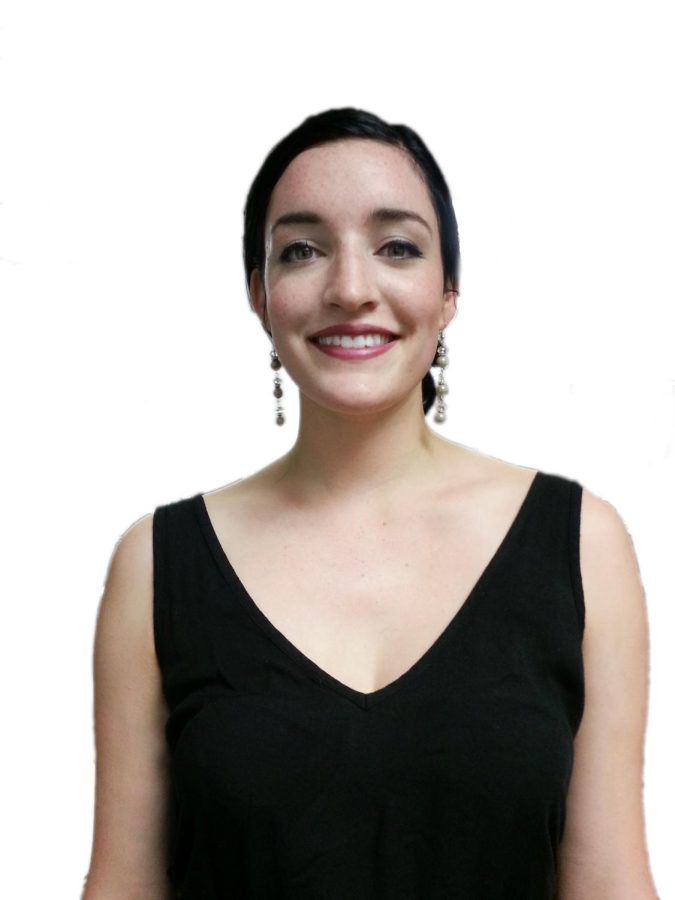Opinion: Study shows gender, minority bias in higher education
Rachel Godin is a junior journalism major and columnist for the Daily Kent Stater. Contact her at [email protected].
April 29, 2014
On a woman’s way up in her career, there are some rungs missing from the ladder. Inequality starts at the top, specifically in private institutions and where faculty members make more money.
A study published last Tuesday by Scientific American Magazine sought to prove that the disparity between women and racial minorities in career advantages exists in grad school, thus the path towards ultimate career success is tainted from the beginning by subtle forms of sexism.
Very little is known about the bias leading up to the selection of candidates attempting to enter into graduate programs, so the study focused on the documentation of how women and minorities are treated upon being accepted into the academy.
The study looked at how likely 6,548 professors from 259 American universities were to respond to students who wanted to informally meet to discuss future research options. Researchers chose this situation because it falls outside of a university’s formal checks and balances and has the potential to boost an academic career overall.
Katherine Milkman at the University of Pennsylvania in Philadelphia, along with colleagues Modupe Akinola of Columbia University in New York and Dolly Chugh of New York University, sent fake emails to 6,548 professors asking for counsel. Each email was identical, except for the names of the sender.
According to the Scientific American Magazine article by Elizabeth Gibney, “The names were picked for being recognizable by gender and ethnicity. ”Steven Smith” representing a white male, for example, and ‘Latoya Brown’ for a black female.”
According to the Scientific American Magazine they, found “overwhelmingly that professors of all groups were more likely to respond to white men than women and black, Hispanic, Indian or Chinese students. Academics at private universities and in subjects that pay more on average were the most unresponsive.”
Responses to business students showed the greatest disparity — 87 percent of white males received a response, while females and minorities received only 62 percent. All of the sciences showed a significant bias against minorities and women as well.
Opposite trends were seen in the fine arts.
Female stereotypes are so pervasive that even diverse groups respond less to women and minorities. Results showed that the more diverse groups of professors were not more likely to be accepting of women and minorities.
The study showed that everyone responds differently when it comes to women and minorities, and even if their responses vary only a bit, it is these small acts of passive inequality that combine to give rise to social misconceptions, which hold up society’s respected institutions.
The study didn’t prove anything about a specific group in higher education being at fault for the bias, but it also found that for every $ 13,000 increase in salary, there was a five-percent decrease in response rates comparing Caucasians versus other students.
Suzanne Holt, director of women’s studies at Kent State said, “We’ve inherited serious biases that continue to inform all our choices, no matter university culture’s declared enlightenment and progress towards non-sexist, non-racist attitudes. I believe some of the most vital work remaining for feminism is facing these deep structures, not to critique them, but to take them under clear-eyed, clear-headed advisement. As we make plans, create initiatives, revamp approaches, seek means to educate and empower women, we need to increasingly see the world-as-is and equip girls and women for it. This doesn’t preclude our continued efforts to change our contexts — local, national, global — in directions of fair play and respect for diversity, but it offers the best shot for girls and women to find success and happiness in the meantime, which is almost certain to be a long meantime!”
This study only looks at one way a successful academic career comes into fruition, but the collective effect caused by each instance of inequality might help explain why there is such an immense lack of women and minorities represented or treated differently in areas of higher education careers.
As a woman, this news is extremely disheartening.
Expertise in any field, whether it is in music, academics or athletics, comes from sufficient practice and drive, not what’s in your pants.












